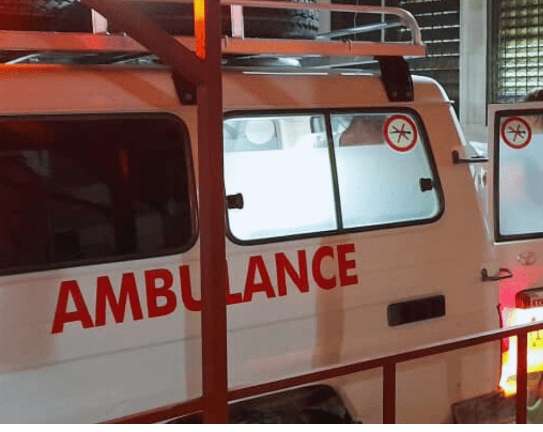Gang Violence Claims Lives of Journalists and Police Officer in Haiti
The escalating gang violence in Haiti reached a grim new low on Tuesday with a brazen attack at the General Hospital in Port-au-Prince, the nation’s largest public medical facility. The attack, which occurred during a public ceremony intended to mark the hospital’s reopening after a forced closure due to earlier gang activity, resulted in the tragic deaths of two journalists and a police officer, while several others, including journalists, sustained injuries. This incident underscores the perilous environment faced by journalists in Haiti and the devastating impact of unchecked gang violence on the country’s already fragile healthcare system. The attack, reportedly orchestrated by the Viv Ansanm gang coalition, transformed a moment of hope for improved healthcare access into a scene of terror and bloodshed, further destabilizing an already volatile nation.
The reopening of the General Hospital, originally scheduled for Christmas Eve, was meant to be a beacon of resilience in the face of widespread gang violence that had forced its closure earlier in the year. However, the celebratory atmosphere quickly turned into chaos as suspected gang members opened fire on those gathered for the event, including a contingent of journalists covering the reopening. Among the deceased were journalists Markenzy Nathoux, who also worked part-time with the USAGM, and Jimmy Jean. The Haitian Association of Journalists condemned the attack, describing it as a “macabre scene” akin to terrorism, highlighting the extreme and targeted nature of the violence against members of the press. The attack not only silenced these voices but also sent a chilling message to other journalists and media organizations operating in Haiti, further eroding freedom of the press and access to information in the beleaguered nation.
The attack drew swift condemnation from both national and international bodies. Haiti’s interim president, Leslie Voltaire, expressed condolences to the victims’ families, while the government labeled the attack a “heinous act” and vowed a strong response. However, the specifics of this response remain unclear amidst the pervasive insecurity and the government’s struggle to assert control over vast swaths of the country. Videos circulating on social media offered graphic evidence of the carnage, depicting lifeless bodies on stretchers, one with a clearly visible press badge, and injured reporters receiving treatment inside the hospital. While local radio reports mentioned a higher number of casualties, including seven journalists and two police officers injured, these figures awaited official confirmation. The attack serves as a stark reminder of the vulnerability of civilians, particularly journalists, caught in the crossfire of Haiti’s escalating gang warfare.
The Viv Ansanm gang coalition, led by the notorious Johnson “Izo” André, claimed responsibility for the attack. In a video statement, André declared that the gang had not sanctioned the hospital’s reopening, asserting their control over the area and their willingness to use violence to enforce their will. This audacious claim highlights the extent of the gang’s influence and the challenge it poses to the Haitian government’s authority. The gangs’ dominance in Port-au-Prince has transformed the city into a battleground, with civilians bearing the brunt of the violence. The attack on the General Hospital is a particularly egregious example of the gangs’ disregard for human life and the devastating consequences of their actions on the delivery of essential services.
The targeted attack on journalists at the General Hospital is not an isolated incident. Earlier in 2023, two other journalists were killed in separate incidents, underscoring the increasing dangers faced by members of the press in Haiti. Journalists, who play a crucial role in documenting and reporting on the country’s crisis, have become targets for violence, further hindering efforts to address the root causes of the instability. The shrinking space for independent journalism contributes to a climate of fear and self-censorship, limiting the flow of information and hindering accountability for human rights abuses. The international community must prioritize the protection of journalists and support efforts to ensure press freedom in Haiti.
The pervasive gang violence in Haiti has had a devastating impact on the country’s already fragile healthcare system. Hospitals and pharmacies have been looted and destroyed, disrupting the delivery of essential medical services and exacerbating the humanitarian crisis. The closure of the General Hospital, followed by the attack during its attempted reopening, further restricts access to healthcare for the population, particularly those in Port-au-Prince. The escalating violence, coupled with deteriorating sanitary conditions, particularly during the rainy season, has also contributed to the resurgence of diseases like cholera, further straining the healthcare system and posing a grave threat to public health. Addressing the root causes of the gang violence and restoring security are crucial to rebuilding Haiti’s healthcare infrastructure and ensuring access to essential medical services for all citizens. The international community must increase its support for Haiti to address this multifaceted crisis and help the nation chart a path towards stability and recovery.
Share this content:












Post Comment